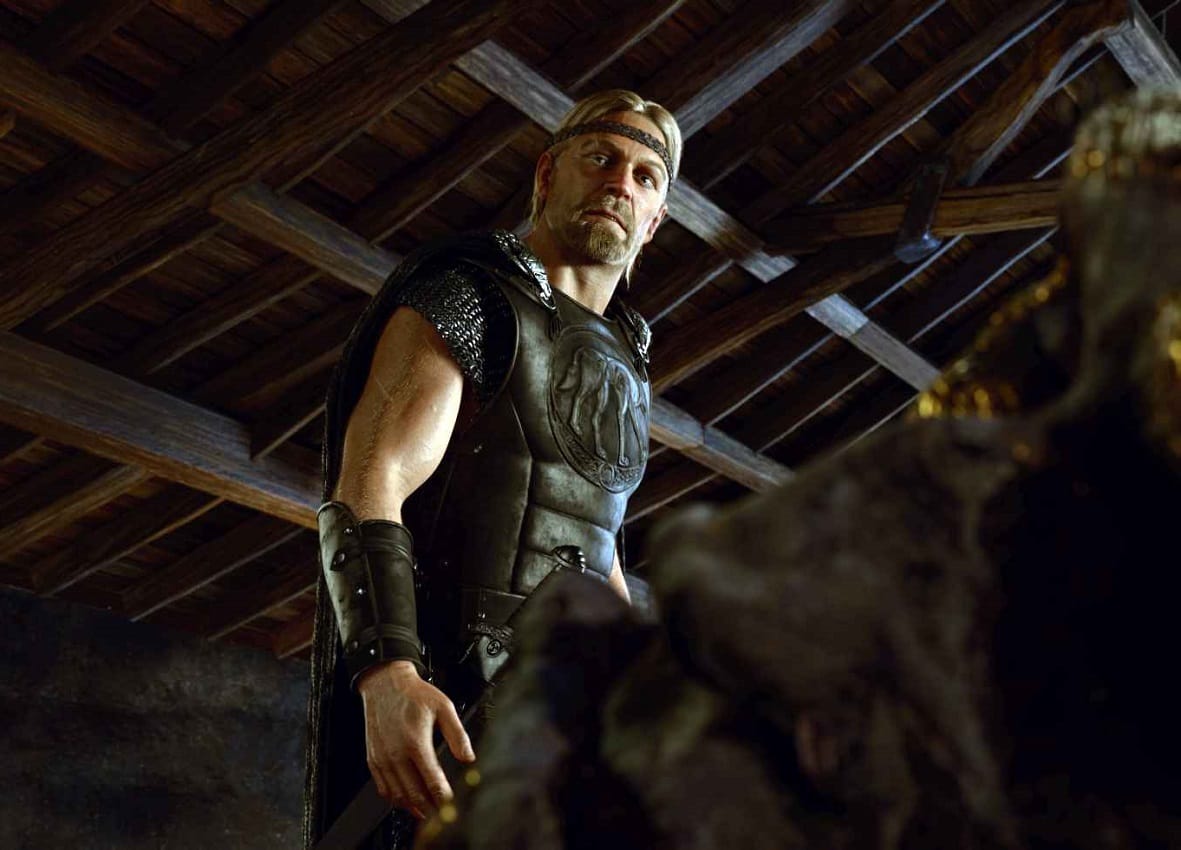
Essay on Beowulf
“Beowulf” is a heroic poem, written about the 8th century, which describes the exploits of the legendary Beowulf. It should be noted that the 8th century was a period when Christianity led confrontation with paganism. “Beowulf” is a poem, which is an early example of the form of moral heroism, but not that which is caused by desire for fame and power. Beowulf is able to sacrifice himself and to be daring in the name of justice (Richardson, 1997).
The action of the poem takes place in Scandinavia (Denmark and Sweden), and the characters that appear in it, belong to the Scandinavian tribes. Beowulf is a young warrior of Geats that went across the sea to rid the king of the Danes Hrothgar from his befallen distress: the monster Grendel has attacked the royal palace of Heorot and exterminated Hrothgar’s vigilantes for 12 years (Kiernan, 2011). At night Beowulf defeats Grendel, who lost his hand, crawled into his lair, where he found his death. Grendel’s mother (an even more terrible monster) is trying to take revenge for the murder of her son, but the hero Beowulf wins her entering her lair at the bottom of the sea.
Peace and joy restored in Heorot, and Beowulf, generously awarded by Hrothgar, returns to his homeland. He becomes king and rules Geats for 50 years. His life ends with the most glorious of all his acts – a victory over the dragon, which ravaged the country, following his angry because of the attack on an ancient treasure guarded by him. In this fight, Beowulf kills the dragon, but he receives a mortal wound. His loyal vigilante that helped Beowulf to defeat the dragon suit the funeral pyre, Beowulf’s body is burned with his conquered treasure.
The old mythological school construed Beowulf and his exploits as symbols of natural phenomena: Beowulf is a good god, curb elements which are personified by monsters; peace of his reign is the blessed summer, his death is the arrival of winter weather. In his youth, Beowulf was lazy and did not differ with valor, but when he grew up, he acquired the force of “thirty.”
The work is divided into two parts. In the first part, Beowulf pays a visit to the King Hrothgar, the kind of Scyldings. Young hero saves the kingdom from Grendel and his mother, terrible monsters that terrorize all people’s possessions and kill warriors. In this part, Beowulf appears as a decisive and courageous hero who wins the unequal and dangerous encounters. He is faithful to a sense of honor, and his actions and deeds are a model of heroic idealism. In the first part, Beowulf earned fame for his faith in God and honest service to his king (Shippey, 2008).
The second part of the poem takes place fifty years later, and it describes the second stage of the heroism of Beowulf. He has aged and has been king for a long time. He fought in his last battle, in which he died, defeated by the dragon. This reflects the ideal of courage and nobility of his rebellious spirit. The image of Beowulf is very mysterious, and the way he dies, shows an image of victory in defeat.
In the poem, all the qualities of the characters are exaggerated. Beowulf is a brave, courageous, but at the same time, a decent hero, whose merits cannot be doubted. Grendel, by contrast, is shown as a bloodthirsty monster that kills only for his own pleasure and at the same time he feel neither doubts nor remorse.
The changes are not peculiar to the ideal hero; there are no changes occurred in Beowulf throughout the narrative. The image of Beowulf as an honest and good ruler is not displayed in the light of the descriptions, but through a simple statement of this fact, and this lack of evidence of his change from his youth until he became king, makes the poem even more serious. Maturity of Beowulf appears at a time when, instead of taking the throne he helps to make it to a son, who is the rightful heir of it. His heroic spirit subjected to the tests again and again, but each time he passes them with the honor and dignity. Even his death shows that the welfare of people is more important for Beowulf than his personal success and fame (Treharne, 2008).
Beowulf is often compared to Ulysses (Odysseus), with the only difference that Ulysses was a hero of noble birth with a lost soul, and Beowulf shows his heroic spirit, the ideal of power, which serves for good, and the victory of good over evil in his every act.

